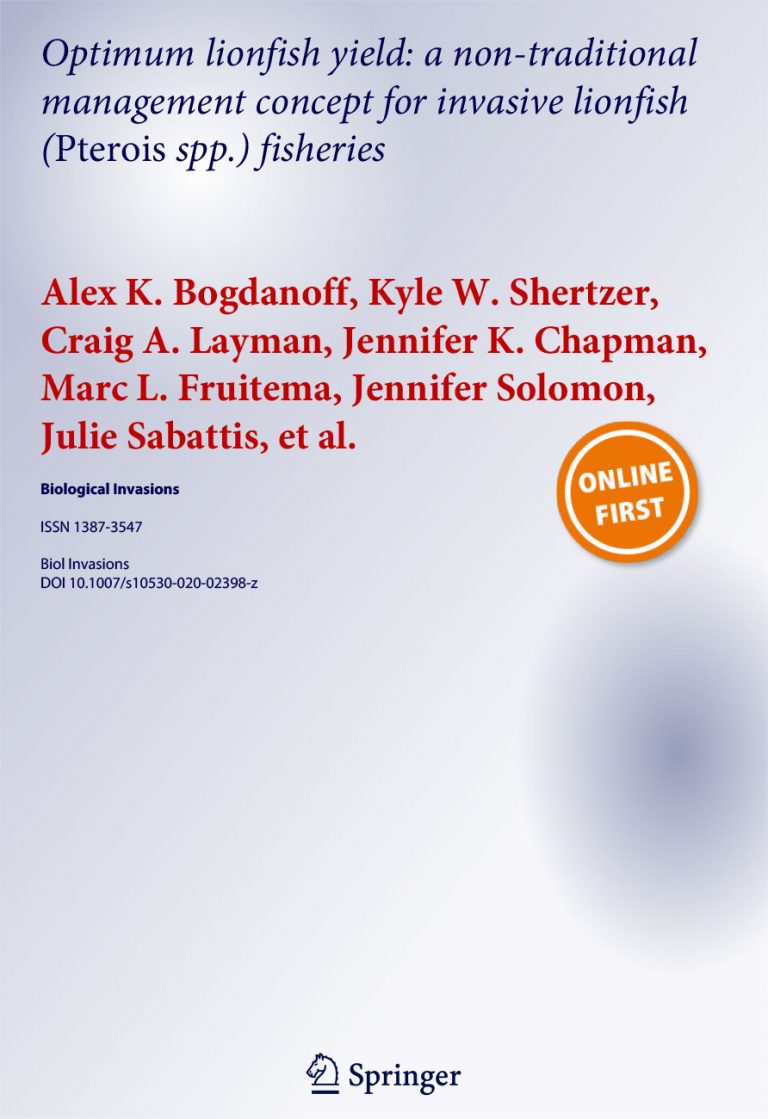Abstract:
This paper describes a non-traditional fisheries management concept and an indicator-based framework to encourage and guide management of invasive lionfish (Pterois spp.) fisheries in the temperate and tropical western Atlantic. We introduce the concept of optimum lionfish yield (OLY)—an extension of the concept of ecologically sustainable yield— which considers local ecological health in the establishment of fishery management targets. In contrast to traditional fishery targets, OLY is a target exceeding maximum sustainable yield (MSY) that still provides relatively high sustainable yield, but further contributes to population suppression beyond what is achievable through targets at or below MSY. Thus, OLY seeks to balance management trade-offs from both natural resource and invasive species management perspectives.
In this study, we developed an agestructured population model and applied the concept of OLY to quantify targets to initiate management of a nationally-managed lionfish fishery in Belize. Socioeconomic and ecological data were used as indicators to formulate OLY values. The model indicates that lionfish in Belize are biologically robust to fishing pressure, which corroborates previous findings. Fishing lionfish at rates above MSY levels is expected to substantially reduce population abundance, much more so than fishing at rates below MSY levels, while having relatively minimal impacts on yield. Population suppression can be further enhanced by reducing size at selection, but this is expected to be done at a significant cost to landings. Together, these data support continued establishment of (managed) commercial lionfish fisheries throughout the invaded range to provide an alternative sustainable fishery resource and serve as a means of national- and internationallevel control. While the concept and framework described here is introduced for management of invasive lionfish, it could be applied to management of other invasive species, both aquatic and terrestrial.

















